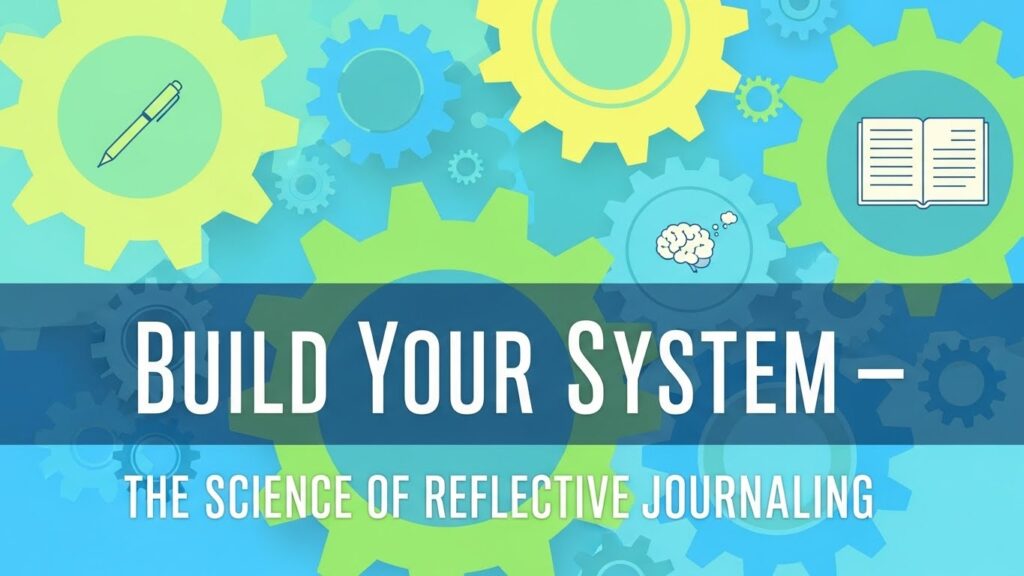How to Journal Your Study Abroad Journey Like a Pro
Learn how to journal your study abroad journey like a pro. Turn travel reflections into emotional growth, intercultural insight, and lifelong, “You’ll live thousands of moments abroad — but if you don’t start documenting them now, you’ll forget the very experiences that were meant to change you.”
Every international student knows that studying abroad will be life-changing — but very few realize how quickly those changes fade if they aren’t captured. The excitement of landing in a new country, the nervous laughter at orientation, the first meal with host friends, even that moment you finally understood a local joke — they all feel unforgettable in the moment. But months later, they blur.
Here’s the truth: memory is fragile, even when moments feel vivid.
According to research from the Association for Psychological Science (2023), our brains tend to compress emotional experiences over time, keeping only fragments of the most intense moments. What this means for international students is simple but sobering — your abroad experience can fade faster than you expect.
And yet, most students never start journaling early enough. In fact, a 2022 Education Abroad Research Network (EARN) study revealed that nearly 63% of students begin reflecting or writing about their experiences only after the halfway point of their program — when the transformation has already begun and half the story is gone.
That’s why journaling isn’t just an optional hobby — it’s a tool for preservation, reflection, and growth.
“By the time most students start journaling, half their adventure is already over. Don’t make that mistake.”
Every city walk, late-night conversation, and cultural mix-up has the potential to teach you something profound — but only if you capture it. Journaling is what transforms “something that happened” into “something that changed me.”
You’re not just collecting memories — you’re writing the story of who you’re becoming.
Break the Myth — Journaling Abroad Isn’t Just Writing Your Day Down
Negation Prompt: “Most students think journaling is just a diary — but it’s actually a growth engine.”
Let’s be honest: when most students hear the word journal, they picture a locked notebook from middle school filled with doodles, crushes, and rants about homework. But journaling abroad is nothing like that. It’s not about recording what you did — it’s about discovering who you are becoming while you do it.
The Myth: Journaling Is Only for Writers or Overthinkers
Many international students avoid journaling because they think it takes too much time or creativity. But the science tells a different story. A 2023 Institute of International Education (IIE) study found that students who journaled at least twice a week reported a 78% increase in emotional resilience and stronger self-understanding. That’s not a coincidence — it’s psychology at work.
Journaling doesn’t just track experiences; it helps your mind process them. When you put thoughts into words, you’re essentially teaching your brain how to make sense of change. This reflective act is what allows you to move from reacting to understanding.
The Science of Reflection
Psychologist Dr. James Pennebaker, known for his pioneering work on expressive writing, discovered that journaling can reduce stress, improve immune function, and even enhance focus. Why? Because writing forces you to turn emotional chaos into structured narrative.
For international students, that structure is a lifeline. The cultural dissonance — new foods, accents, humor, classroom norms — can feel like sensory overload. Reflection helps you process it all. Instead of letting culture shock bury you, journaling lets you break it down into meaning.
“When you write about what confuses or challenges you, you’re not venting — you’re translating experience into growth.”
Reflection as Adaptation
Every study abroad journey is, in essence, an emotional experiment. You’re testing how you function outside your comfort zone. And journaling becomes your lab notebook — a record of how you evolve.
A student from the University of Edinburgh’s Global Mobility Program (2023) described her journal as her “anchor.” She wrote about how, during her first month abroad, she felt overwhelmed and homesick. But reading back her early entries months later, she noticed something: her tone had changed. Her doubts had turned into curiosity, her frustrations into cultural understanding.
That’s what journaling abroad does — it documents your transformation arc.
Reflection Accelerates Growth
Here’s the hidden benefit: writing regularly actually speeds up adaptation. Studies in intercultural learning show that students who actively reflect adjust faster to new environments, because they’re not just reacting to cultural differences — they’re interpreting them.
Reflection takes you from “Why is this so weird?” to “What is this teaching me?”
So no — journaling abroad isn’t just for sentimental travelers. It’s your personal development toolkit.
“Every page you write isn’t just a record — it’s a roadmap to resilience.”
When you start journaling early, you don’t just remember your journey — you shape it.
Build Your System — The Science of Reflective Journaling

When you’re living abroad, every day feels like a sensory explosion. The sights, the smells, the small wins, the awkward mistakes — they all hit at once. Without structure, it’s easy for your journal to become a random collection of thoughts instead of a tool for growth. That’s why reflective journaling — not just casual writing — is what separates an ordinary travel diary from a true study-abroad transformation record.
“Reflection turns experience into education.”
The Psychology Behind Reflective Journaling
According to research by Dr. James Pennebaker at the University of Texas, expressive writing helps students manage stress, boost immune function, and improve academic performance. The act of translating feelings into words isn’t merely emotional — it’s neurological. When you journal, your brain’s limbic system (which manages emotions) connects with your prefrontal cortex (responsible for reasoning). That connection helps you regulate emotions instead of being ruled by them.
For international students, this is crucial. Culture shock, homesickness, and academic pressure can make emotions unpredictable. Reflective writing acts as your internal translator — it turns “I feel lost” into “I’m learning how to navigate uncertainty.”
Harvard’s Graduate School of Education expands on this idea, calling reflection a bridge between experience and understanding. It’s not enough to live abroad; you have to think through what you’re experiencing to truly benefit from it.
Why a System Matters
Let’s be real — without a plan, journaling can easily fall apart. You might start enthusiastically, write daily for a week, and then abandon it once midterms hit. That’s why building a journaling system ensures consistency and purpose.
Here’s a framework professionals use, adapted for study abroad life:
The 4-Step Reflective Cycle: Event → Emotion → Insight → Action
- Event: Describe what happened, factually and briefly.
“I missed the bus to class because I misread the schedule.”
- Emotion: Note your immediate reaction.
“I felt frustrated and embarrassed.”
- Insight: Ask yourself why you felt that way or what it revealed about you.
“I realized I still expect things to work like they do at home.”
- Action: Decide what you’ll do differently next time.
“I’ll double-check local transit apps and plan 10 minutes earlier.”
This simple process transforms random entries into lessons. Over time, it builds emotional awareness, problem-solving ability, and resilience — skills universities now identify as key to global employability.
Reflective Writing as Emotional First Aid
Think of journaling as your emotional check-in station. Research from The Journal of Counseling Psychology (2022) shows that international students who journaled about their adjustment stress reported a 32% reduction in anxiety levels after four weeks. Writing doesn’t erase problems — it gives them shape, which makes them manageable.
“When you write, you move your emotions from the inside of your mind to the outside of your page.”
Even short reflections count. A five-minute daily journal entry can reset your emotional balance faster than hours of scrolling on social media.
Self-Check: How Reflective Are You?
Before you move on, take this 30-second self-assessment:
- When something frustrates me abroad, do I pause to ask why?
- Do I write about my emotions as well as my experiences?
- Do I connect what I’m learning abroad to who I’m becoming?
If you answered “no” to any of those, you’re not alone — most students journal descriptively, not reflectively. The good news is, awareness is the first step toward change.
Practical Tips for Starting Strong
- Pick a consistent time: Morning reflection sets intentions; evening reflection captures insights.
- Use prompts: “What challenged me today?” or “How did today’s moment reflect my values?”
- Keep it low-pressure: 100 words a day is enough. The goal is consistency, not perfection.
- Revisit your entries weekly: Highlight one line that stands out. That’s often where your biggest insight hides.
Why This Step Matters
When you build a reflective journaling system, you’re creating a feedback loop between what happens to you and how you grow from it. Instead of letting experiences pass through you, you digest them — emotionally, intellectually, and culturally.
As Dr. Pennebaker puts it:
“Writing about emotional upheavals helps us make sense of them. Once we have a story, we can move on.”
That story becomes your strength.
Capture the Real Story — Not the Instagram Version

In the age of social media, it’s easy to fall into the trap of curating your study abroad life to look perfect. Sunlit photos, café aesthetics, weekend trips — it’s a highlight reel that makes everything appear effortless. But behind every post is a story most students never share: the late-night homesickness, the awkward silences in class, the anxiety before speaking in a new language.
“If your journal only records smiles, you’re missing the story that could change your life.”
Journaling abroad isn’t about crafting a picture-perfect narrative. It’s about capturing the truth — the whole experience, not just the glamorous parts.
The Hidden Power of Honesty
Here’s the paradox: authenticity, not perfection, is what turns journaling into transformation. When you document your struggles as openly as your triumphs, you give yourself permission to grow from them.
A 2022 Education Abroad Research Network (EARN) survey found that 60% of international students only begin journaling once they’re already struggling emotionally — usually after culture shock, loneliness, or burnout sets in. But those same students later reported that journaling helped them understand their emotions, regain control, and reframe negative experiences into learning moments.
That’s because writing honestly helps you process experiences in real time. It replaces the urge to perform with the courage to reflect.
Why Instagram Can’t Tell the Whole Story
Social media shows the external journey — but journaling captures the internal one. Online, your experiences are filtered for others. On paper (or screen), they’re raw, private, and personal. And that privacy is where true growth happens.
According to a 2023 Harvard Graduate School of Education study, students who engage in authentic reflective writing develop stronger self-efficacy and cultural empathy, because they examine their experiences through vulnerability instead of vanity.
“Your most uncomfortable moments abroad are often the ones that teach you the most — but only if you have the courage to write them down.”
Examples: The Unfiltered Moments That Matter
- Language Barriers: You ordered the wrong dish at a restaurant, or misunderstood your professor. Instead of laughing it off, reflect: Why did that frustrate me? What did it reveal about my patience or self-expectation?
- Cultural Missteps: Maybe you broke an unspoken rule or said something that didn’t land well. Ask yourself: What did I assume that wasn’t true here? What did this teach me about communication?
- Loneliness and Isolation: The first few nights abroad can be painfully quiet. Instead of avoiding that feeling, explore it. What does this silence teach me about comfort, independence, and connection?
These are the moments that shape your self-awareness — not the scenic selfies.
Writing Prompts to Keep It Real
Here are some powerful journal questions to keep your writing authentic and reflective:
- What surprised me most about this week — and why?
- What frustrated or confused me today?
- When did I feel out of place, and what did I learn from that moment?
- What small victory am I proud of, even if no one else noticed?
- If I were completely honest, what’s been harder than I expected?
The goal isn’t to sound poetic — it’s to sound real. Authentic entries will always mean more to your future self than polished ones.
Turning Vulnerability Into Strength

Being honest in your journal doesn’t make you weak; it makes you aware.
A Journal of Cross-Cultural Psychology (2023) study found that students who wrote candidly about their fears and insecurities adapted 40% faster to new environments than those who focused only on surface-level experiences. Why? Because acknowledging discomfort activates self-compassion — the foundation of resilience.
“Vulnerability isn’t the opposite of strength — it’s how strength begins.”
By recording your genuine experiences, you create a story arc that’s emotionally rich and profoundly human. When you look back, you’ll see not just where you went, but who you became along the way.
Your Journal Is Your Mirror, Not Your Marketing
Remember, your journal doesn’t need an audience — just your honesty. It’s your space to be unfiltered, emotional, reflective, and sometimes even contradictory. That’s where its power lies.
So, the next time you feel pressure to post a perfect update, pause and ask:
“Have I written the real version for myself yet?”
Because ten years from now, it won’t be the filtered photos that help you remember your journey — it will be the words you wrote when no one was watching.
Turn Reflections Into Growth — The Intercultural Lens
Every study abroad story begins with excitement — new people, new food, new possibilities. But as the novelty fades, deeper questions begin to surface: Why do people think this way? Why do I react differently? What does this say about me?
Those questions mark the moment your journey shifts from travel to transformation — and your journal becomes the bridge between experience and understanding.
“When you stop just living abroad and start reflecting abroad, that’s when real growth begins.”
How Reflection Builds Intercultural Intelligence
According to the Harvard Graduate School of Education (2023), reflective writing enhances cultural empathy and cognitive flexibility — the ability to understand perspectives different from your own. In other words, journaling trains your mind to see the world through more than one lens.
It’s one thing to experience culture shock — it’s another to decode it. When you pause to reflect, you begin noticing patterns in behavior, communication, and values that reveal what drives a society. That understanding transforms frustration into curiosity, and judgment into learning.
For example:
- A student in Japan might initially find the emphasis on group harmony (wa) restrictive, but through journaling, they may realize it’s rooted in respect and shared responsibility.
- A student in Italy might feel impatient with relaxed timekeeping, but reflection could uncover a cultural value of presence and connection over punctuality.
In both cases, journaling becomes a tool for cultural decoding — not just describing, but interpreting.
From Observation to Insight
Here’s the formula that helps turn reflection into intercultural growth:
The Weekly Reflection Formula
- One new thing you learned about the culture:
What tradition, behavior, or mindset caught your attention this week? - One thing you learned about yourself:
What was your reaction — and what does it reveal about your habits or values? - How those two insights connect:
What can you learn from the contrast? How might this change the way you think or act?
This structure helps you move from simple observation to cross-cultural understanding. Over time, your entries reveal patterns — how your worldview expands and how you learn to navigate difference with empathy.
From Frustration to Growth
Research from the Forum on Education Abroad (2023) found that students who kept reflective journals showed a 42% increase in intercultural competence — meaning they developed better communication skills, cultural sensitivity, and adaptability.
That’s because journaling gives emotional distance. When something confusing happens — a miscommunication with a host family, a group project that feels chaotic, or a clash of opinions — reflection allows you to examine it with perspective instead of defensiveness.
“Reflection turns cultural confusion into personal evolution.”
A student from the University of Toronto’s Global Scholars Program described this process perfectly:
“My journal became a safe place to unpack what I didn’t understand — and by the end, I realized it wasn’t the culture that was changing me, it was my response to it.”
Spotting Your Growth Markers
Over time, you’ll start to notice subtle shifts in your journal entries:
- Your language moves from ‘they’re so different’ to ‘we value different things.’
- Your tone shifts from frustration to curiosity.
- Your entries focus less on what’s uncomfortable and more on what’s meaningful.
These are signs of cultural humility — the recognition that no culture is superior, only different. And that mindset is one of the most valuable lessons study abroad can teach.
Turning Reflection Into Action
Reflection isn’t just about understanding — it’s about applying what you learn. Once you’ve identified a cultural pattern or personal realization, ask:
- How can I adjust my communication or behavior next time?
- What habit from this culture could improve my own life?
- How can I use this experience to build bridges, not walls?
By turning reflection into action, your journal becomes a blueprint for intercultural competence — a skill that employers, educators, and global organizations now rank among the most valuable for future leaders.
The Bigger Picture
According to UNESCO’s Global Mobility Report (2024), more than 6.5 million students study abroad each year, but only a fraction engage in structured reflection. Yet, those who do consistently return home with stronger adaptability, higher empathy, and clearer life direction.
So while your peers might come home with souvenirs, you’ll come home with something rarer — self-knowledge shaped by cultural connection.
“Cultural intelligence isn’t learned in the classroom — it’s earned through reflection.”
Your journal is not just a record of where you’ve been; it’s the map of who you’re becoming — globally aware, emotionally grounded, and deeply human.
Create Your Legacy — Make Your Journal Work for You
By now, you’ve learned that journaling abroad isn’t about keeping a diary — it’s about documenting growth. But what happens when your time abroad ends? When the goodbyes are said, the suitcase is zipped, and your journal is full of stories?
That’s when your journal becomes something more than pages of memory — it becomes your legacy.
“Every student comes home with souvenirs — only a few come home with self-awareness. Which one will you be?”
Your Journal as a Career and Academic Asset
One of the most overlooked benefits of study abroad journaling is how it can directly support your academic and professional goals. Those raw reflections you’ve written — the challenges you overcame, the skills you built, the insights you gained — can be translated into real-world language that universities, scholarships, and employers understand.
A 2023 Institute of International Education (IIE) report revealed that students who reflected consistently during study abroad demonstrated 40% higher clarity in post-graduation goals and reported stronger confidence in interviews. Why? Because journaling forces you to articulate your learning — and that articulation becomes your edge.
Here’s how to leverage it:
1. Turn Reflections Into Application Essays
When you apply for grad school or scholarships, stories matter. Admissions officers want more than grades — they want self-awareness. Your journal is a treasure trove of personal growth narratives:
- That moment you navigated a cultural misunderstanding.
- The time you pushed through homesickness and built community.
- The instance where failure led to resilience.
Use those reflections to answer essay prompts about adaptability, leadership, and cross-cultural communication.
2. Translate Journal Insights Into Resume Language
A story about figuring out public transportation in a foreign language can become:
“Developed cross-cultural problem-solving skills and adaptability through navigating foreign systems.”
That entry about collaborating with international classmates can become:
“Strengthened intercultural communication and teamwork across diverse academic contexts.”
Your journal entries are your hidden résumé — you just need to translate them into professional language.
3. Build a “Study Abroad Portfolio”
Consider curating excerpts, photos, and reflections into a digital or printed portfolio. This not only preserves your experience but also serves as a personal showcase of global competence and growth.
You can create it in:
- Notion — for structured digital archives.
- Day One — for timestamped journal reflections.
- Evernote or Google Docs — for searchable, shareable documentation.
This portfolio can later serve as a foundation for blogs, presentations, or creative projects — a record of who you became abroad and how it changed your path.
The Legacy Mindset: Writing for Your Future Self
Every time you write, you’re leaving a trail for the future version of you — the one who might forget how it felt to take that first step in a new city, the one who might doubt their ability to adapt again.
“Your journal is your proof that you can do hard things.”
Reading your past reflections can reignite confidence when life feels uncertain. You’ll see not just what you did, but how much you grew.
This is what psychologists call narrative identity — the story we tell ourselves about who we are. Journaling gives you authorship over that story. You stop being a passive traveler and start becoming the narrator of your own evolution.
Analog vs. Digital — Choosing Your Medium
There’s no wrong way to journal abroad, but each format has its strengths:
- Analog notebooks: More intimate and distraction-free; perfect for reflection and sketching.
- Digital tools (Notion, Day One, Evernote): Easier to tag, search, and revisit entries; ideal for long-term use and portability.
- Hybrid approach: Write raw thoughts by hand, then summarize key insights digitally once a week.
The best journal is the one you’ll actually use.
From Reflection to Lifelong Practice
Once your study abroad program ends, don’t stop journaling. You’ve built a powerful habit — one that can sustain your mental well-being and clarity throughout adulthood. Reflective writing can help you navigate career transitions, relationships, and new environments just as it helped you abroad.
Your study abroad journal is the first chapter in a lifelong book of self-growth.
Your 7-Day Reflection Challenge (CTA)
Start right now — before you forget another moment.
“Write one honest paragraph every day for a week. By Day 7, you’ll see your abroad experience — and yourself — completely differently.”
Day 1: What moment defined your arrival?
>>> Day 2: What has surprised you the most so far?
>>> Day 3: When did you last feel out of your comfort zone?
>>> Day 4: What does home mean to you now?
>>> Day 5: What lesson has travel taught you about yourself?
>>> Day 6: What cultural difference challenged your beliefs?
>>> Day 7: How have you changed since the day you arrived?
By the end of this challenge, you won’t just have a journal — you’ll have a map of your personal evolution.
Final Reflection: The Legacy of Words
You don’t have to remember every street name, every meal, or every conversation. What matters most is the meaning you take away — and journaling is how you preserve that meaning.
When you return home and life moves on, your journal will remind you that you’ve lived boldly, learned deeply, and adapted fearlessly. It will remind you that you didn’t just go abroad — you grew abroad.
“Your journal isn’t the end of your story. It’s the proof you’ve already begun writing a remarkable one.”
FAQs About Journaling While Studying Abroad
Q1: Why should I journal during my study abroad experience?
Journaling helps process emotions, reduces culture shock, and boosts self-awareness — leading to higher adaptation and emotional resilience.
Q2: What should I write about in my study abroad journal?
Reflect on your emotions, cultural differences, daily challenges, and moments of growth. Don’t just describe events — explore what they mean.
Q3: How often should I write in my journal?
Aim for 10–15 minutes daily or a weekly reflection. Consistency matters more than length.
Q4: Can journaling improve my academic or career goals?
Yes! Reflective writing sharpens critical thinking and helps articulate personal growth in scholarship and job applications.


